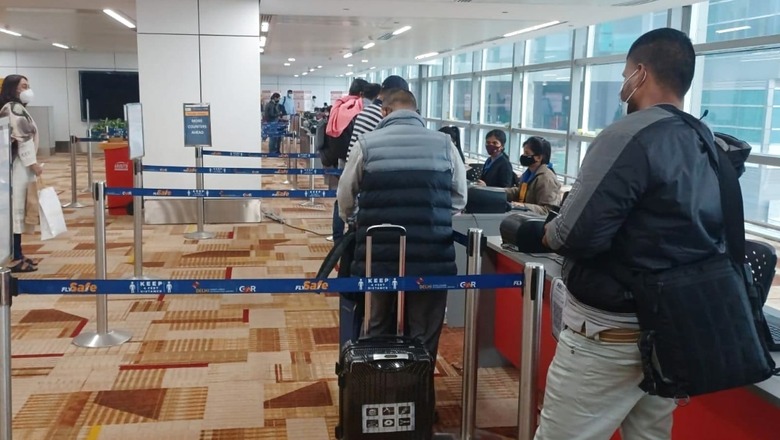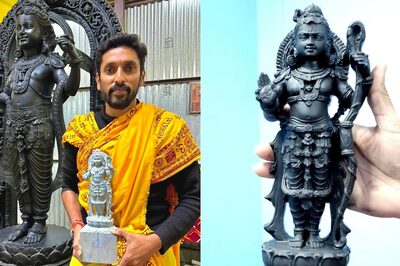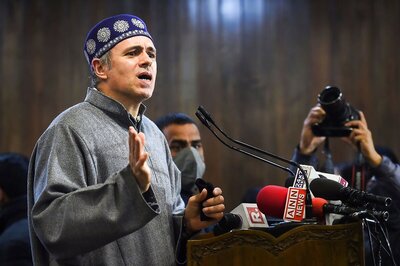
views
The omicron variant of the novel coronavirus has triggered travel bans and restrictions once again even as the new variant has already been detected in 15 countries. Notified by the WHO as a ‘highly transmissible variant of concern’ on November 27, there are already reports that omicron emerged even before its discovery in the African continent. Nevertheless, in India, too, there is strict vigil and scrutiny at airports to detect cases of the new variant.
FOLLOW | Coronavirus LIVE Updates: 2 Omicron Cases in Karnataka; CM Bommai Says Will Issue New Rules in Ist Reaction at News18 India Chaupal
Elaborate arrangements have been made at Indira Gandhi International Airport to maintain Covid safety norms as well as provide necessary facilities to passengers. Here is a guide if you are flying to India from abroad and are landing at Terminal 3 of the international airport in Delhi:
Planning for travel
All international travellers should submit self-declaration form on the online ‘Air Suvidha’ portal (https://www.newdelhiairport.in/airsuvidha/apho-registration) before their scheduled travel, including details of last 14 days. A negative RT-PCR report should also be uploaded and the test should have been conducted 72 hours prior to the journey.
Passengers should also give an undertaking on the portal to the ministry of civil aviation stating that they will abide by the decision of the appropriate government authority to undergo home/institutional quarantine/self-health monitoring as warranted.
Pre-boarding procedure
Passengers originating or transiting from ‘at-risk’ countries will be informed by the airlines that they will undergo post-arrival testing, quarantine if tested negative, and stringent isolation protocols if tested positive.
Below is a list of countries from where travellers will need to follow additional measures on arrival in India, including post-arrival testing:
1. Europe, including the UK
2. South Africa
3. Brazil
4. Botswana
5. China
6. Mauritius
7. New Zealand
8. Zimbabwe
9. Singapore
10. Hong Kong
11. Israel
At the time of boarding, only asymptomatic travellers will be allowed to board after thermal screening. Passengers are advised to download Aarogya Setu app on their mobile phones.
Upon arrival at Terminal 3
Social distancing and thermal screening will be strictly followed once passengers de-board the flight. The self-declaration form should also be shown to the airport health staff. Symptomatic passengers will immediately be isolated and taken to a medical facility, as per protocol. If a person tests positive, their contacts will be identified and managed.
If you are flying in from ‘at risk’ countries
At Terminal 3 of Delhi airport, passengers flying in from ‘at risk’ countries will have to submit samples for post-arrival Covid-19 test on payment. There are two tests that a passenger can opt for: rapid PCR test that costs around Rs 3,500 with results in 90 minutes, and regular RT-PCR that costs Rs 500 with results in four to six hours. Costs are as mandated by the central government.
Travellers will be required to wait for their test results at the arrivals section before taking a connecting flight or moving towards immigration. The Delhi international airport has made arrangements to accommodate up to 1,400 international passengers at a time, for those coming in from ‘at-risk’ countries till results of their RT-PCR tests are declared. This capacity can be increased, as per requirements.
Delhi airport sources told News18 that arrangements like vending machines, free WiFi in the waiting area among others have been made available so that passengers can relax, or watch a movie, till the test report comes in.
After results are declared
If passengers test negative, they will have to follow home quarantine for seven days and take a retest on eighth day of arrival in India and, if negative, they will be asked to self-monitor their health for the next seven days.
If such travellers test positive, their samples will be sent for genomic testing at INSACOG laboratory network. These passengers will be managed at a separate isolation facility and treated as per standard protocols, including contact tracing.
Travellers from countries excluding those ‘at risk’ will be allowed to leave the airport and will be advised to self-monitor their health for 14 days. A sub-section (5 per cent of the total flight passengers) will undergo post-arrival testing at random.
Read all the Latest India News here

















Comments
0 comment